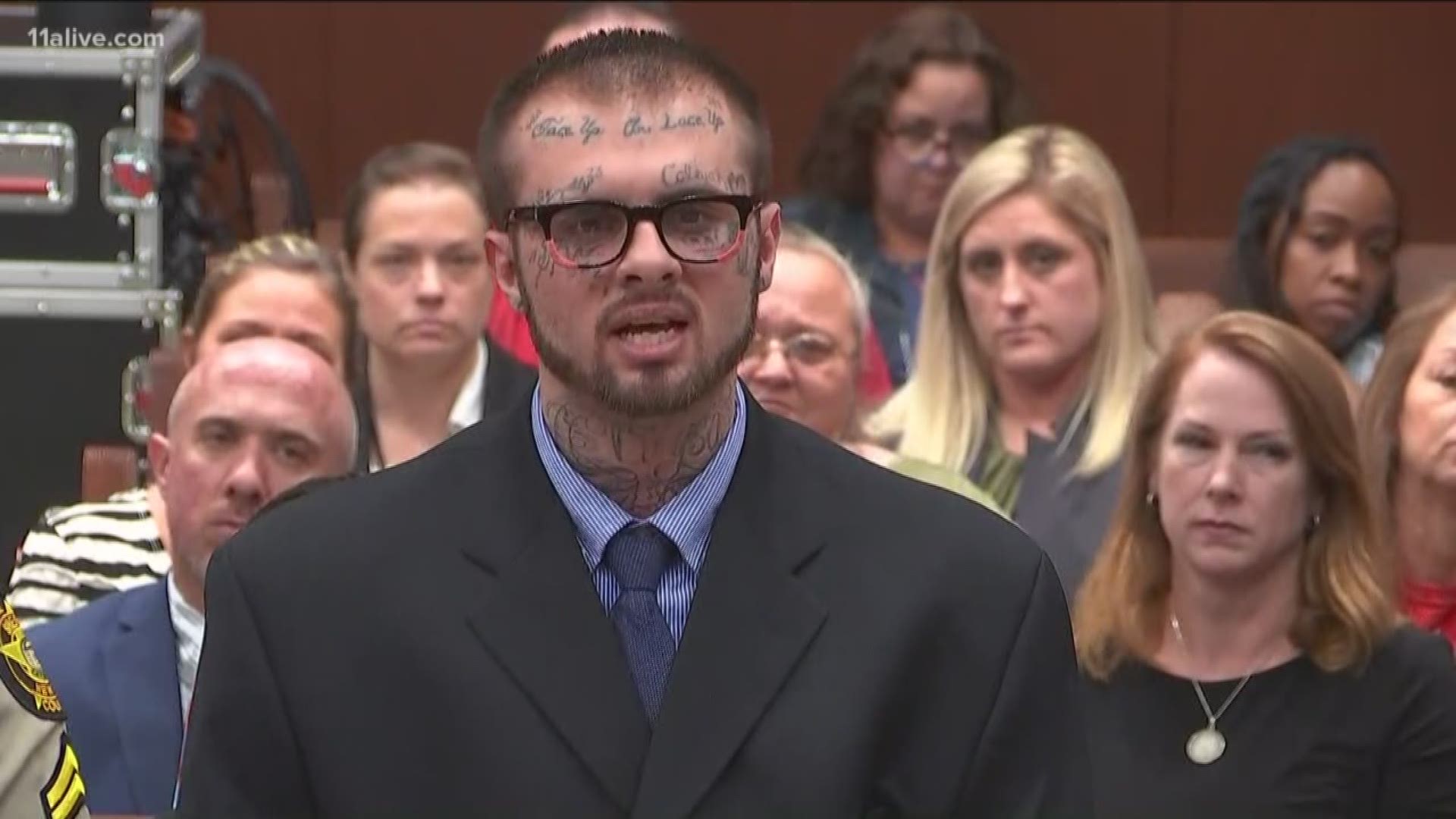ATLANTA — Editor's note: The video above is from a previous story.
Chris McNabb, a metro Atlanta father found guilty of murdering his two-week-old daughter in 2019, has had his conviction upheld by the Georgia Supreme Court.
McNabb was convicted on eight counts, including malice murder, in the trial three years ago. The mother of two-week-old Caliyah McNabb, Cortney Bell, was also convicted of second degree murder - though that was recently overturned by the Georgia Court of Appeals, the second-highest court in the state.
Bell's murder conviction was reversed after she argued the evidence was "insufficient" in her case - an argument McNabb also made in his appeal.
He'd argued that the evidence "was entirely circumstantial" and "did not exclude other reasonable explanations for Caliyah's death."
But the Georgia Supreme Court rejected those arguments.
The ruling generally deferred to the trial jury on how to interpret the evidence, noting, "whether alternative hypotheses (for the murder) are reasonable, however, is usually a question for the jury, and this Court will not disturb the jury’s finding unless it is insufficient as a matter of law."
"As for malice murder It is for the jury to determine from the facts and circumstances presented in evidence whether a killing is malicious," the ruling added.
The justices also found that while "there was no direct evidence of premeditation or the exact manner in which Caliyah was killed," the evidence nonetheless "authorized the jury to determine that the circumstances of Caliyah’s killing show an abandoned and malignant heart and that McNabb was the person who inflicted her injuries."
Secondly, McNabb had argued his legal defense was "constitutionally ineffective" in the trial, because his lawyer had failed "to object to to evidence of McNabb’s drug use, evidence that McNabb physically abused Bell, and evidence that McNabb and Bell are first cousins."
The justices found that an agreement between the defense and prosecution to limit evidence presented in court of drug use and physical abuse to only the two-week period leading up to the murder - rather than going back several years - was a legitimate "strategic choice" by the attorney.
And they determined it was inevitable the family relationship would be revealed in court, because many of the witnesses were family members, and "the jury’s understanding of a familial relationship between a defendant and a witness could affect the jury’s assessment of the witness’s credibility or potential bias and provide context for the witness’s testimony."
McNabb was sentenced after the trial to life without parole plus 10 years, after Judge John M. Ott - in a moment that has endured as a viral clip in some corners of the internet - asked the father what sentence he would give the real guilty party, if McNabb were indeed innocent.
McNabb indicated the "maximum sentence" - and then Ott gave it to him.

